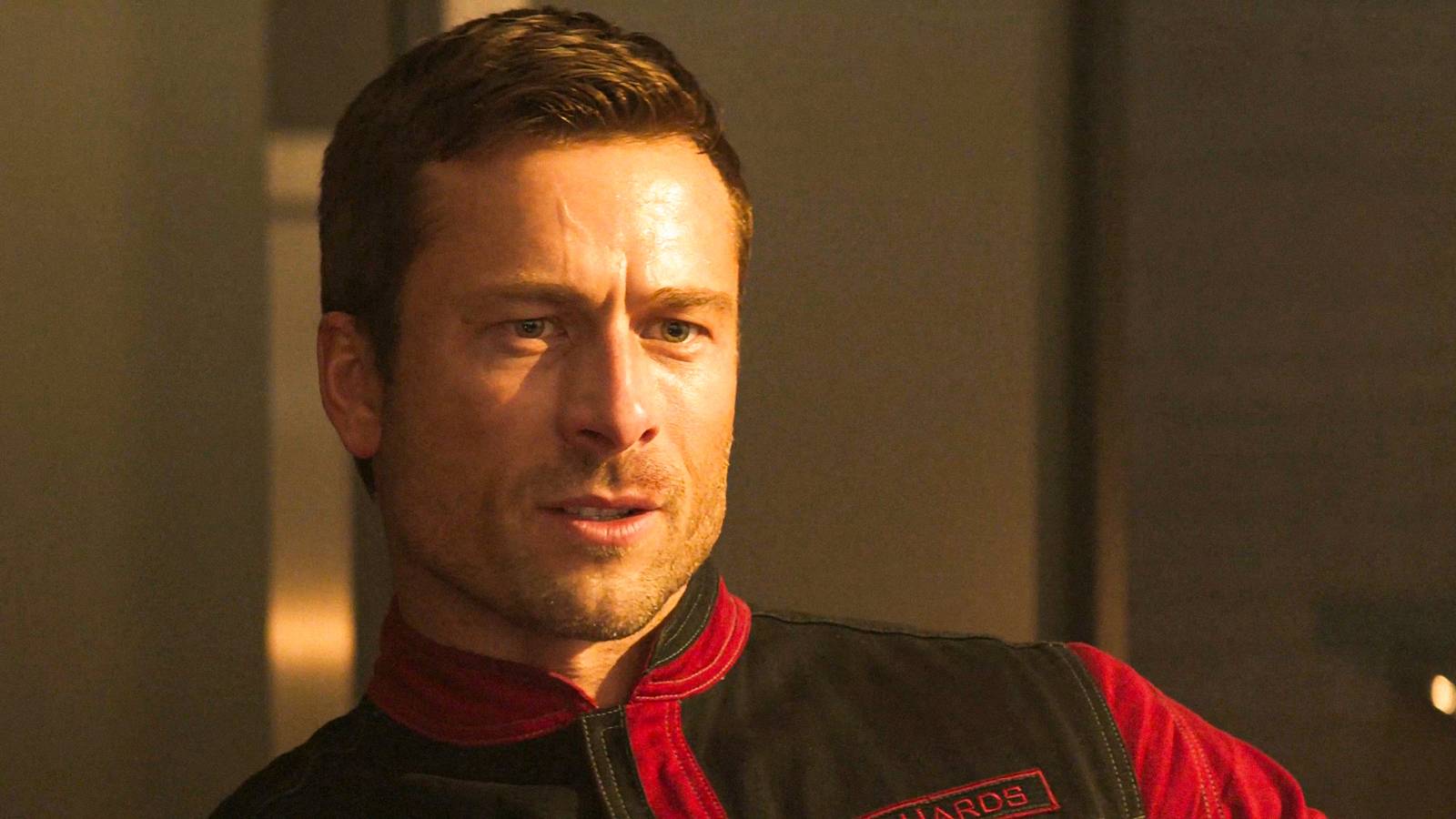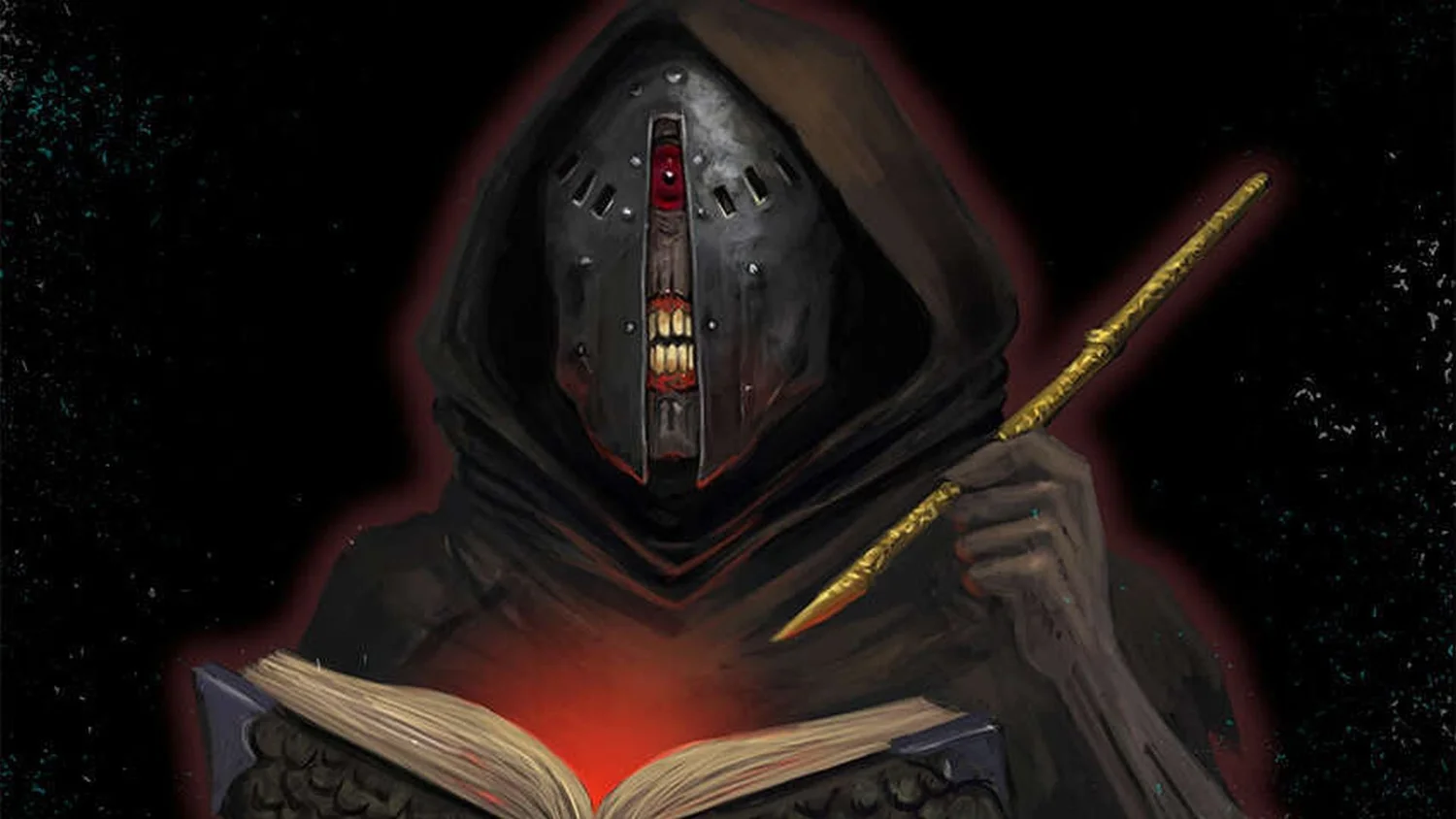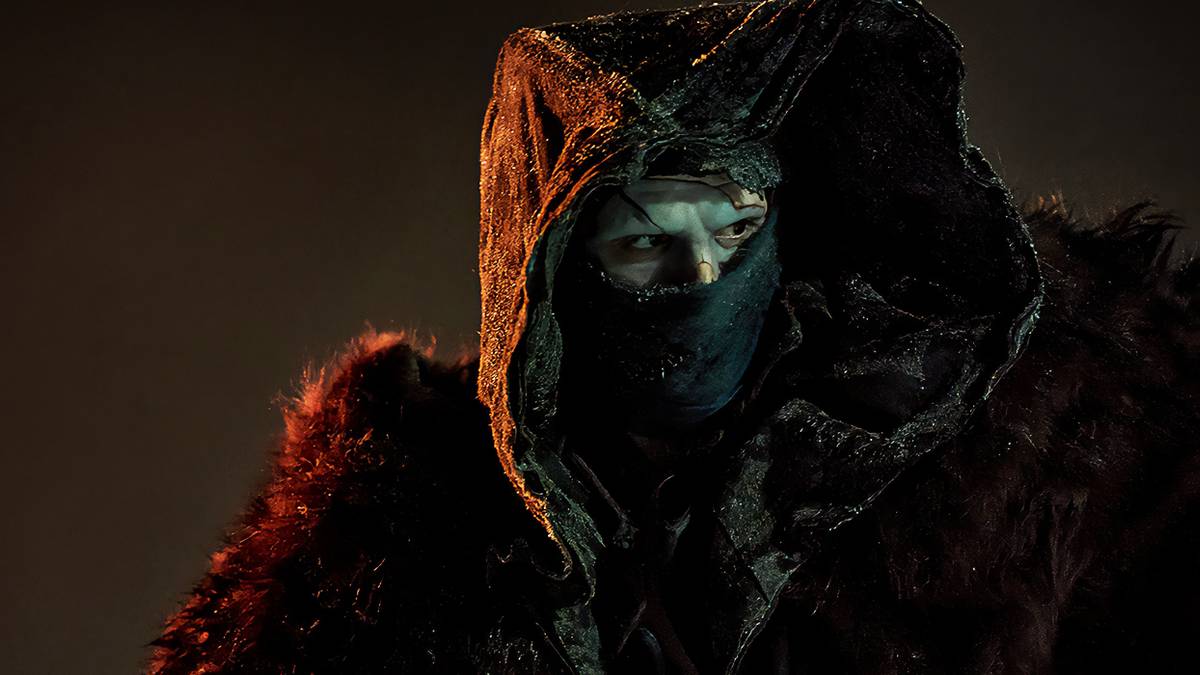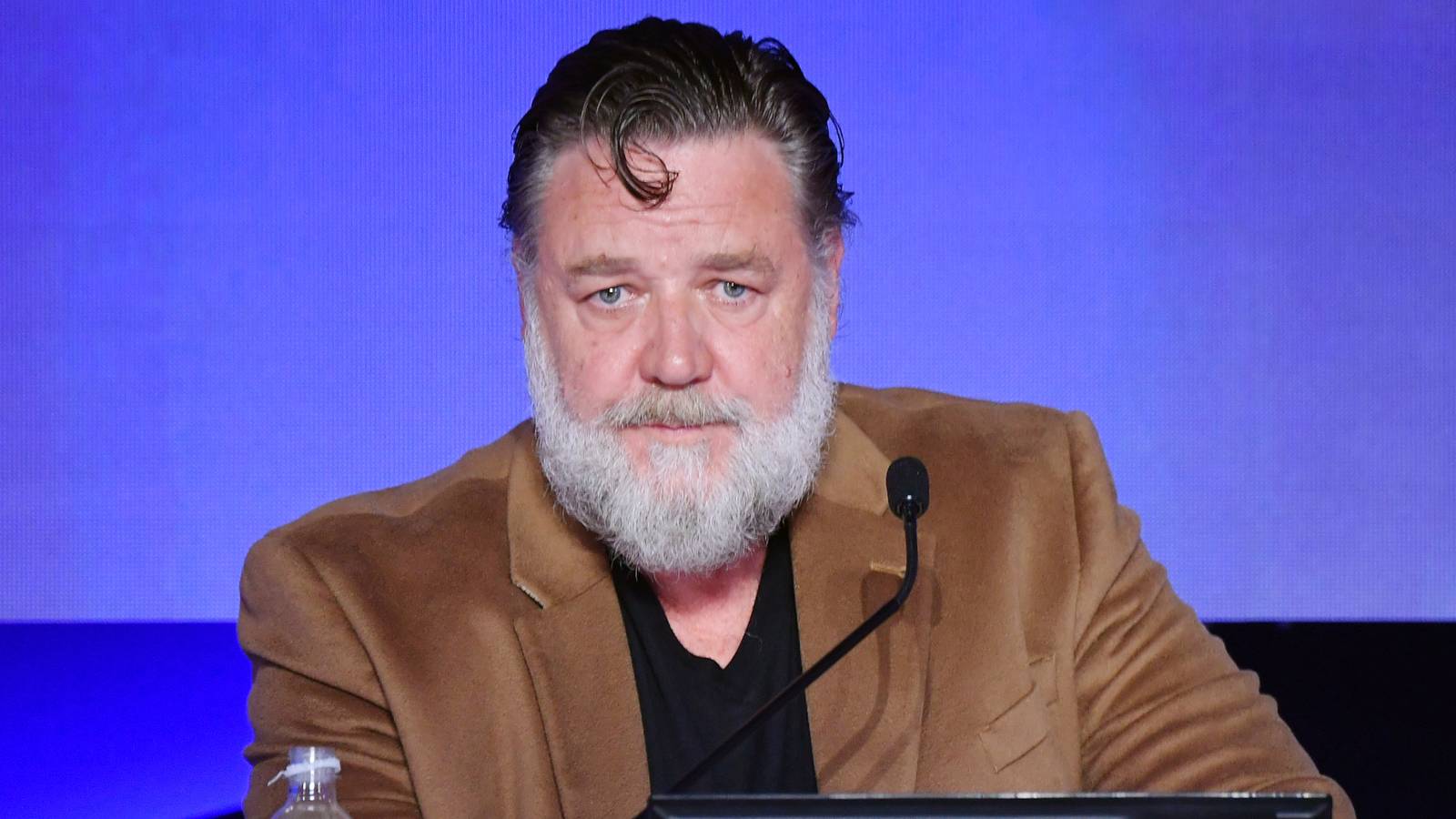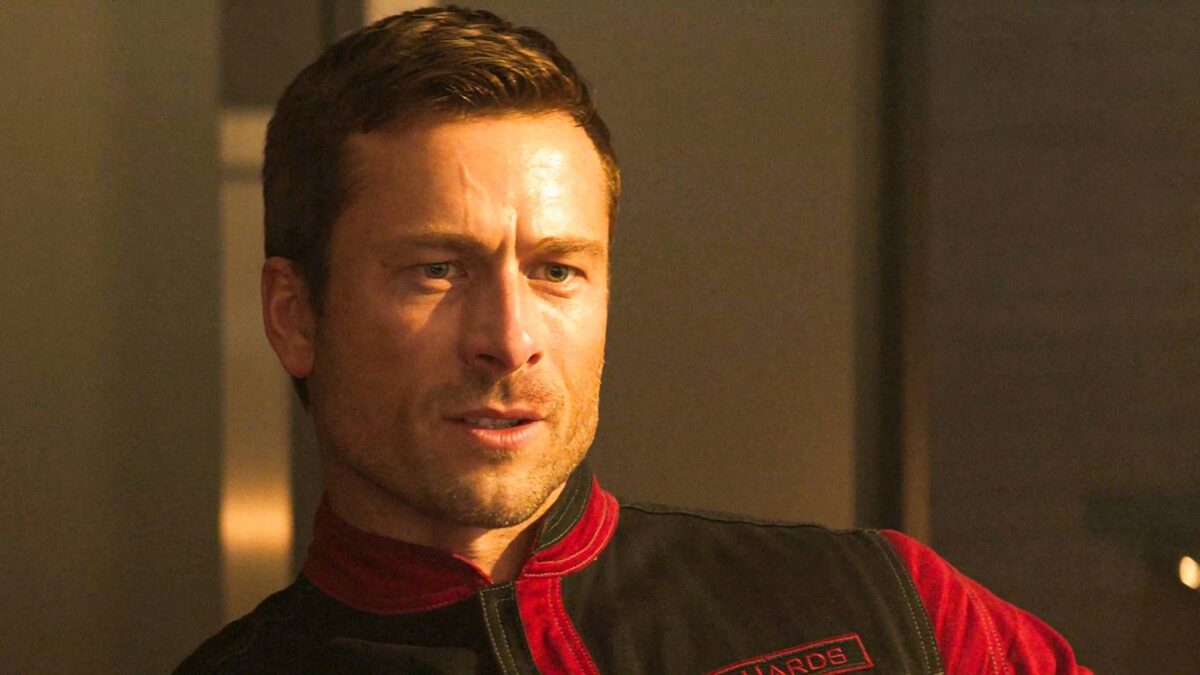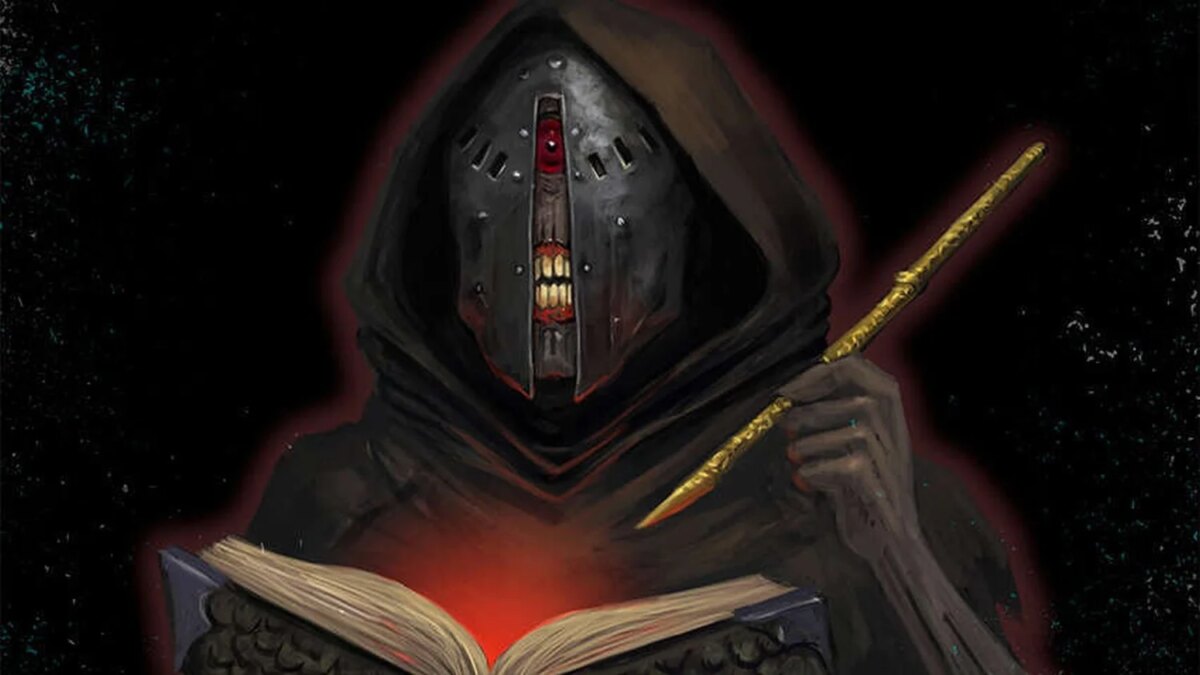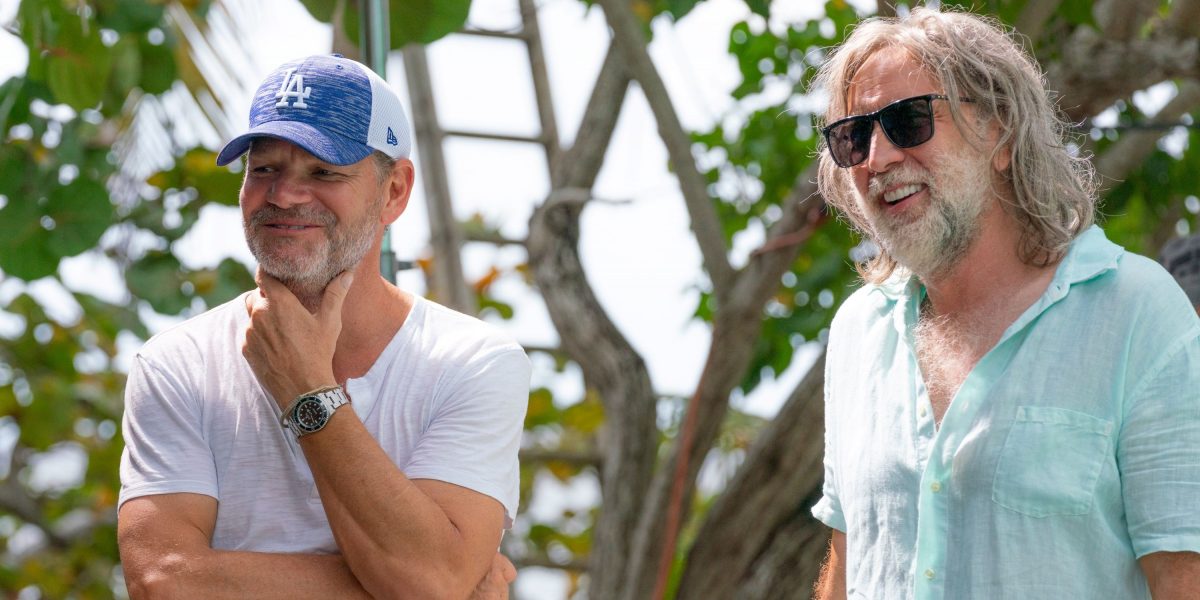
‘The Retirement Plan’ Director on Nicolas Cage’s Grandpa Assassin
Sep 16, 2023
The Big Picture
Nicolas Cage embraced the role of a grandpa assassin in The Retirement Plan due to the combination of family values and the comedic aspect of the film. Writer/director Tim Brown and Cage collaborated closely during pre-production, discussing character development and referring to past films to shape Cage’s portrayal of his character. Cage’s preparation and dedication made Brown’s job as a director easier, as he trusted the vision and gave exactly what was needed for each scene. The collaboration between them made every day of working together enjoyable.
[Editor’s note: The following contains some spoilers for The Retirement Plan.]From writer/director Tim Brown, the action comedy The Retirement Plan sees Matt’s (Nicolas Cage) quiet life in the Cayman Islands interrupted when his estranged daughter (Ashley Greene) and granddaughter (Thalia Campbell) need his help to survive a very dangerous situation. Caught up in a criminal enterprise, not only are their lives at risk, but past secrets are uncovered that reveal Matt is actually much less of a beach bum and much more of a grandpa assassin.
During this 1-on-1 interview with Collider, Brown talked about what made Cage embrace this role, the relatable family drama at the center of this story, playing up the comedy, why he likes to think more about character types than specific actors when he’s writing a script, the fun of playing up an odd couple dynamic, figuring out the film’s ending, how having been on both the creative and business side of the film industry has shaped him as a filmmaker, and the projects he’s developing and hopes to get into production next.
Collider: Nicolas Cage as a grandpa assassin was something I had no idea that I needed in my life, but now I’m so grateful for it, so I very much appreciate that.
TIM BROWN: Thank you. That’s great. That’s what we were going for.
Image via Falling Forward Films
How did Nicolas Cage end up doing this role?
BROWN: We sent him the script and he said yes. I think that what drew him to the project, and what he said to me was certainly number one, was that he loves the concept of family movies. He’s a big fan of Japanese cinema, and Kurosawa, in particular. There are a lot of family values in those films, and I think that was a big part of it. And then, it was the comedy. I wish Nic would do more comedy. He needs to do more. Raising Arizona, to this day, is one of the great comedies, and that character that he played is absolutely hilarious. He’s done comedy, but he’s known more for a lot of action and a lot of drama. But he is phenomenally talented, as a comedic actor, with the timing and the little nuances that he brings to a character. I call it the Nic Cage spice, where there are certain points that he’ll have a certain facial expression that I didn’t anticipate when I’m staring at the monitor and I burst out laughing at, that he brought to the table.
So, it was a combination between the family aspect of it and that he thought it was quite funny. Jackie Earle Haley said the same thing. He was like, “I was laughing, but am I supposed to be laughing? Is it supposed to be funny?” And I was like, “Yes, it’s supposed to be funny.” I always put the comedy in the scene where you think it’s probably not appropriate, or it’s weird to laugh, at that point in time. That’s where I always think that you should put the joke. I’ve always believed that, in a film, if you have a serious note or an emotional note, it’s really nice to exit with a laugh, so I try to find a way to end something that might be darker or with more action, with a little line or something that happens, that leaves the scene not upsetting or shocking, but more funny, to remind everyone, a little bit, that it’s a movie, it’s okay, and we’re not too serious. That element of drew Nic to the project.
When you wrote this, did you do so with him in mind? Did you see him in this role, as you were creating it, or did you not think about possible casting until you’d finished writing the script?
BROWN: I write a script with an actor in mind, but more an actor who played a certain type of role. So, I’ll be thinking of Ben Affleck in Gone Girl. I’m not thinking about shooting with Ben Affleck. I’m thinking about the character in Gone Girl that he portrayed. I look at it a little bit like a performance, so I use cinema and past cinema to find those characters. For instance, for Bobo, I wrote Luca Brasi from The Godfather, except I made him really smart. Whoever the actor is that played Luca Brasi, I think of the character. It wasn’t necessarily Nic. There was a character in mind that I had, that an actor portrayed. And then, once we were casting and the concept that Nic Cage could possibly do this came up, I just went, “Oh, my gosh.” Then, everything changed, but what changed was the character of Matt. If it was Tom Hanks playing Matt, that would have changed it, in a different way. What Nic brings is other characters from the past, in the same way that I do. In this instance, he brought a Leslie Howard film to it, called The Scarlet Pimpernel. If you know the film, and not many people probably do – I didn’t know it until I watched it – you understand how he’s bringing that character that Leslie Howard played, and breathing life into Matt. It’s all in a Nic Cage package, but it’s not Nic, it’s the Leslie Howard character that he uses toward his own energy, to create the character of Matt.
Image via Falling Forward Films
What’s it like to work with, to collaborate with, and to direct someone like him? When you’re working with someone on that level, I’m guessing that he has ideas and that he likes to be involved. He’s played so many memorable roles, in so many memorable movies. What was that relationship like on set? Was there a lot of communication going on between you?
BROWN: A lot of it takes place, no question, at the head, long before we start shooting. He had the script and he sent notes, and then he and I got on the phone, for the first time, after he had gone through the script and had some ideas on dialogue. That was when we first started talking, which was four or five weeks before we started shooting. By the time he gets to set, we’ve talked, ad nauseam, about the character of Matt and where he is, at certain points in the movie. I would reference certain films. We’re both cinephiles, so I’d pull out movie titles that influenced me, at a certain point in the script. I wrote a really detailed biography, that was five or six pages, on Matt’s whole life. When I gave that to Nic, he knew that he could at least trust me, as a director, from the perspective that, if there’s anything about Matt’s life and he had a question, like any actor would, he could ask, “Why am I saying this? Why am I walking in that door?” And I could go, “Well, you’re walking in that door because you were abused, as a kid, and you’re not walking in that door because your mom didn’t like you.”
I always had an answer, and that gave Nic a sense of confidence. He always completely trusted me and he brought so much to the table beforehand that, when we were day-to-day on set, there was very little of me saying, “Matt just came out of the bedroom, so this is the scene where this is happening.” Nic knows that cold. He knows where he is in the script. No matter if we were shooting linear or nonlinear, out of sequence, it didn’t matter. We were shooting the very final scene on the first day, and he knew where his character was in the final scene because he was so prepared, and that preparation is a collaboration between he and I, for weeks on end, prior to shooting. The day-to-day on set was a lot of blocking like, “You’re coming out that door. You’re walking out that door. You’re gonna punch that guy in the face, and then you’re gonna kick that guy in the head. Now, you leave. And that’s the scene.” How his character was during that scene, we’d already talked about.
He made my life so much easier, as a director, because he came so completely prepared and together. He helped me be more prepared, so that when we were on day 32 of shooting, or whatever day we were on, he knew everything about that scene and he knew everything about not only his character, but he knew every other character in the film, as well. He’s so prepared, incredibly hardworking and dedicated, and he trusted my vision. On set, he would always say to me, “I’ll give you what you want,” and he always gave me what I wanted. And if he gave me something that he had an idea for, which he did all the time, with these little nuances, we embraced that most of the time. He would bring his special Nic Cage spices to the table and we would discuss it very briefly like, “What were you doing there?” And he’d go, “You don’t like it?” And I’d say, “I’m gonna love it. But what is it?” And then, we’d talk about it. On the day of shooting, he might add little nuanced things or improvise on occasion, but very rarely, and everything else was so prepared and pre-thought through, so that anything on the way, we didn’t have to talk too much about, other than blocking. He always knew exactly where every character was in the film, at that point in time.
Because you do put him through quite a bit in this film and it keeps building throughout the story, was there a scene that you were most looking forward to shooting with him, just to see what he would do with it?
BROWN: It was every day of working with him that I looked forward to. Because we had spent so much time together, there was very little intimidation factor. There’s zero ego with Nic. He’s just there to work and contribute. He’d be like, “What do you need me for? I’m here for you.” That’s the only attitude that he ever brought and he was totally prepared. From that aspect, it was a breeze. It would be hard to pinpoint because every scene with him, every day, was a blast. We were always discovering new things, but they’re so subtle. The scene on the balcony, when he’s fighting the guy and he’s hanging off the rope and he ends up on the balcony and his daughter looks at him and says, “I can’t believe what you just did. Who are you? Are you an assassin of some kind?” I can’t remember the line that I wrote, but Nic said to me, “What if, instead of me saying that, I just looked at her and made an offhanded sound.” It’s the highlight of the movie for me, every time I see it, because it’s just this reaction that only Nic Cage can bring, which was this quirky, hard to describe response. He said yes to her without saying yes, and he said no to her without saying no. I can’t even do what he did, but it was absolutely brilliant. And when he would do things like that, it was always a surprise for me. Every day that I’d show up and he’d walk on set, whether we’re talking between setups or whatever, there was always something he would bring, that really made my day. It was a blast, every day and every scene with him, so I looked forward to it all.
Image via Falling Forward Films
For me, there was something particularly fun about watching Nic Cage and Ron Perlman clawing at each other on the ground. What was it like to shoot that moment, with them fighting each other? Is it fun to just let that happen, as the director?
BROWN: That was a bit different because it involved a lot of stunt teams, and the doubles and stunt guys, so it was a bit more complex. They were just in. Ron was in, willing to go. You’ve gotta appreciate that the day we shot that fight scene between those two guys, it was about 94 or 95 degrees and probably 80 or 90% humidity. Nic was wearing a Hawaiian shirt and light pants, so he was okay, but Ron had to wear a heavy suit. So, we would keep Ron in an air-conditioned car, right by where he had to go for set, because the moment he’d walk out, the poor guy would be pouring with sweat. To do those scenes, my concern was not that Ron wouldn’t be soaked through his suit, literally. And they were fighting on sand, which is not great when it comes to sweat because sand sticks to everything. In those scenes, I was concerned about continuity and about making sure that the audience can’t tell it’s not Nic in certain points, and not Ron in certain points, and that it’s a double.
That aspect of it was a lot of fun. We actually had a lot of laughs that day because they do get along really well. Ron and Nic and I like to laugh, and I like to keep it light. They were pretty cool, and that was just the beginning of the film. When you start the shoot, everyone is like, “Yeah, this is great!” But it’s like a marathon. By mile 26, you’re wooing with a little bit less volume. But at the beginning, when they did that scene, and that was probably the only scene they did together, it was great. It was great fun to shoot and to have them be around. Thankfully, at that point in time, they were both in great moods. They were in great moods the whole production, but definitely towards the end, everyone gets a little tired, for sure.
How did you go about finding a kid who could play off both Nic Cage and Ron Perlman? What sold you on Thalia Campbell?
BROWN: I’ve done a lot of productions with kids and worked on a lot of kids’ cinema, kids’ films, and family movies, so I’ve worked a lot with and auditioned a lot of kid actors. The one thing that I’ve always found is that you never get the kid who’s trying to act. You get the kid who’s just saying the words like a normal kid, and Thalia brought that in spades. She was effortless in her ability to read the dialogue and understand the character. I always wanna cast someone who’s very natural and not acting because the moment that a kid tries to act, there’s not a lot of Haley Joel Osment’s around, so you really need to find a kid who has range. That’s not easy, so I look for someone who’s very confident and comfortable and intelligent, and Thalia was all those things in spades. She was wonderful. She was super smart. She really got the character and was never intimidated.
One of the things that I did was put her and Ron together, before we started shooting. Ron, bless him, was so gracious. I just said, “Thalia has got less of a resume than you and Nic, obviously. Can you work with her a little bit?” And he just ran lines with her. She never made a mistake. She was in tune. I think she screwed up a line once. She was so prepared, every day. Myself and my producing partner, we would look at all the auditions in a separate room, and then we would make our notes and we would rank everybody. When we looked at Thalia, we both wrote, “Number one, Thalia Campbell.” Really, there was no second place. I said, “Nic, she’s the one.” And he said, “I just wrote the same thing. She’s the one.” So, I called her and gave her some acting assignments, and then she recorded certain scenes with some direction. I learned that she’s a great listener, which was crucial. I’d give her direction, and she’d do it a little quicker, or a little slower, or a little higher, or a little lower. She was on it immediately, which is a sign of intelligence.
I got lucky that we found Thalia and that she was everything we wanted to be. And I loved the juxtaposition that Thalia and Ron were total opposites. He was big and she was small, he was white and she was black, she was a girl and he was a guy, and he was evil and she was good. All those things were totally juxtaposed, and then I had to find a way to get them on common ground. That’s why I used Othello. And then, of course, she becomes Iago and betrays him, in the end. It was a slow evolution. She wasn’t intimidated by Nic. I don’t think she really knew who Nic was, particularly, because she’s still young enough. She’s not watching Adaptation or Raising Arizona, or anything of that nature. Her mom was probably a lot more excited about Nic than Thalia. Thankfully, Thalia didn’t know enough about what level of stardom Nic had to be intimidated by it, so she was fine with it. She was just a total pro. Ron fell heavy for her. She was so sweet and so nice, and always a joy on set. There was never a problem with her complaining. It was hot, but she was out there in shorts and a tank top, so she was okay. Ron was suffering in the heat, but she didn’t suffer so much. She was a total treat, and thankfully these guys didn’t intimidate her, at all.
Image via Falling Forward Films
It’s so interesting that you’ve worked on both sides of the film industry, on the business side and on the creative side. In an industry like this, it seems that people either do one or the other, and those paths don’t often cross with the same person because it feels like they’re necessary evils to each other. Is there anything from the business side of things that has helped you with how you approach the creative side of things? Does it give you a different of perspective?
BROWN: Yeah. When I’m talking to the distributor about the theatrical plan, I know more about the revenue expectations than they do. That’s a little different from talking to most directors. I don’t talk like most filmmakers because of that understanding. I’ve been in the film business for 30 years now, so it’s been a long time. I’ve grown up through it, from VHS to DVD to where we are now in the streaming space of content. For me, it doesn’t help, at all, in the creative process anywhere, but it does help me begin my project. In other words, I know what projects are maybe a little bit easier to finance or sell, and I always reverse engineer that. I would say kids and family, the horror genre, and action comedy are genres that are a little more accessible. It’s harder to finance a drama. It just is. If you pitch any distributor today and tell them you’ve got a period drama, they’re gonna slam the door in your face. You’re never going to pick the right number on a roulette wheel, when it comes to production, but at least I know it’s gonna be an odd number, so I’m narrowing my field of numbers when I spin that wheel.
It’s not such a wide thing that I’m throwing a deck of cards in there and hoping they land back together. Really understanding how things sell helps me come up with which kind of movie I’m gonna make, but once I start writing, that the only thing that comes into my mind is past movies that I’ve seen and using those as references. My uncle was a booker for Warner, so I grew up watching films, from the age of two. I’ve grown up with [Charlie] Chaplin, Buster Keaton, Laurel and Hardy, the Marx brothers, and everything from Peter Sellers to Mel Brooks, in the sixties, seventies, eighties, nineties, and beyond. I’ve consumed cinema, my whole life. Having that understanding that has nothing to do with sales, but just simply watching movies, gave me a real education, which provides my creative fuel when I’m writing and directing. Everything on the other side of writing and directing helps me come up with a project. And then, of course, being able to sell the project, or at least find the right partners for the film that I’m making, it’s certainly helped me a little bit, in that regard too.
I talk to a lot of filmmakers, and the directors that I talk to that write their own projects seem to either know the ending of their movie from the very beginning and they write toward it, or they’re not sure and it changes a bunch of times. Where did this fall? Did you know what you were working toward, as far as where you wanted to end up?
BROWN: No, I’m in the Quentin Tarantino camp, where he always his dialogue. He just gets two characters talking, and then he believes the characters actually write the dialogue. I don’t think he knows where he’s going, when he starts. I always like movies that start in the middle of something, and then you learn how you got to that point later. That’s why I just wanted to start right away, with a robbery gone wrong. We don’t know who planned the robbery, what they’re taking, why they’re taking anything, or who the players are, but suddenly, you’re just involved. I remember the movie Narc, which opens up with a guy just running, and I thought that was great. You’re like, “Oh, what’s happening?,” and then you just have questions, as the audience. As a writer, I literally started, “Girl in an alley smoking a cigarette.” And then, it became, “Well, why is she there?” “Her husband is committing a robbery.” “Why is he doing that?” I just kept asking myself questions about, why is that person in that circumstance?
The only thing that I knew at the beginning was, what if John Wick became a beach bum and an alcoholic, and just did nothing for 40 years? When he’s 70, could he have any ability at all? What would that ability be? That was the premise that I started with, and then it evolved. So, halfway through the movie, I could not have told you how it was gonna end, remotely. A lot of the people that I’ve been talking to say the film’s almost unpredictable because I’m not following that classic action genre beat sheet. I’m mixing it up a little bit, and where you think the happy ending might happen, I flipped it. If you think this is gonna happen, I wanted to change that, jut to be a little bit unpredictable about it. If I knew the ending, that would have been harder to do. I just had to go, “What if suddenly a van comes crashing through the door? Why would that happen?” You just keep asking questions, and then it literally organically evolves. It’s almost like a vine. It went in different directions and I just kept writing until I hit 130 pages and figured, “Well, there’s a story.” And then, you go in and you keep honing and honing and honing. For me, I go in and I start with a scene, and then it evolves. I know a lot of guys might write a beat sheet and be very specific, but I don’t do that. I had no idea, other than generally, where I was going.
Image via Falling Forward Films
Once you did get to your ending, did it stay your ending, or did things keep changing?
BROWN: It changed a little bit. We had some ideas about how it was gonna end, but that changed somewhat. For the most part, once it was actually on paper and we had the script, that was pretty much it, other than some small things. When you do a low-budget, you’re always trying to find ways to get what you want to achieve because you can’t afford the helicopter anymore, and if you don’t have a helicopter, you need to rewrite the scene. I’ve always believed that there’s a better creative solution to a financial problem. Jaws is a great example of problems on set that forced the filmmakers to dive into the material. That made Jaws not a thriller about a shark, but an amazing character study of three people. I don’t think it started out that way, but because of all the problems and the financial issues and the shark breaking down, it evolved into a character piece because that was really more interesting than just this genre shark attack story.
That’s obviously still there, but when they initially started shooting it, I don’t think that was the intent. I think it was much more genre based and became something else, due to financial circumstances. Anyone in the independence space, the word that every director on earth has to understand is compromise. You have to find another way to get what you thought you were gonna have because you don’t have the helicopter. It forces you to dive into the material and go, “Okay, I don’t have a helicopter, so if he rides in on a bicycle, it’s actually better for the story,” and that becomes the new scene. Because of financial problems or scheduling problems, or whatever the restrictions of independent film are, which are many, the solution comes from diving into the material. I’m a firm believer that every great change in a lot of these films happened because they couldn’t afford something, so they had to rewrite it for something else.
Do you have any idea what you’re going to do next? Are you someone who is constantly writing scripts and keeping a list of ideas?
BROWN: I’m constantly doing that, yeah. I’ve got a film called Snow Diamond, which we’re trying to put together. That’s an action thriller, which is a smaller piece that I didn’t write. And then, my next script that I wrote is called The Shed, which is a drama about a Dickens professor in England who’s fired from his job, and he finds that a young Black man has been squatting in his shed for a year. That’s a story about their relationship, these two guys who are juxtaposed characters – a young Black man who’s homeless and a very wealthy man in his sixties living in a manor house who’s had everything taken away from him. I just find it more interesting when perspectives are so varied and different, in the way someone has been raised, so that when those two characters get together, it makes for more interesting conversation. This young Black man has no clue about the life this rich man has lived. On the other side of that, the rich man has no understanding of how this young Black man has lived his life and gotten to that point where he is.
I think it makes it more interesting, as opposed to two people who were both raised in the same way. Like Sarah and Bobo, I try to create characters so far apart, in every aspect, that they’re the opposite of one another. A Perfect World is a Kevin Costner film that was directed by Clint Eastwood, and it has Kevin playing a criminal who kidnaps a young boy, and it’s about the relationship between those two very juxtaposed characters. One’s older and the other is a thief, one’s younger and more innocent and the other is older. That makes it more interesting and a farther arc for both of them to go through because, for them to understand each other, they need to spend time to get to know one another, and then through conflict and consequence, they’re able, at the end, to have a better understanding of one another. So, I’ve written that script and I’m trying to get that financed, ideally to shoot this year. But there are a whole bunch of circumstances in Hollywood right now that are causing an upheaval.
Image via Falling Forward Films
Which I’m sure you have a unique perspective on, being familiar with both sides of the industry.
BROWN: Very much so. A friend of mine runs an AI program that reads and writes screenplays, and it’s terrifying. You can send the AI a screenplay, and the AI will read the script and tell you suggestions on how to make it better. As you’re looking at the results, it’s not great, and sometimes it’s not good, but the AI is evolving and figuring things out at a rate that no human can comprehend. The scary thing about it is that it’s gonna improve and it’s gonna get better. There’s a point in time where, if you told a producer that you could have a computer that’s never gonna go on strike and that you don’t have to pay anything, they’re gonna gravitate to that. Producers are always gonna gravitate to, “How do I spend less money and how do I have less future revenue shares with my partners?” If you take a writer out of that equation, and it’s a computer that’s suddenly doing that, it’s terrifying, at every level, as far as I’m concerned, especially as a creative executive and a creator, in general, as a writer.
It’s scary because AI learns so quickly that, if it’s bad now or tomorrow or during this conversation, it may improve, and it probably will improve. And it’s very scary for actors. Nic Cage is in The Flash. I don’t know if Nic Cage was paid to be in The Flash, or even knew he was in The Flash. Warner owned that footage of him from the Tim Burton production, so whatever test footage they shot, they used that, the AI simulated it, they recreated a digital version of him, and now, suddenly, Nic’s in this movie, as is Christopher Reeve, who has been dead for quite some time. You see these Tom Cruise deep fakes on the internet that aren’t him and it’s really scary because their whole value is their ability and everything they’ve done everything to get to this point. It would be very unfair that some computer now takes their lifelong effort and work and creates something new out of it. That’s wrong, at every level. It’s very disturbing. I understand why they’re scared of that, and they should be. The technology in our business is advancing so quickly that it’s really scary for filmmakers and writers and actors, fur sure, and something to be very concerned about.
The Retirement Plan is now playing in theaters.
Publisher: Source link
Stephen King Approved The Running Man’s Ending Change In Edgar Wright’s Movie Version
The Running Man director Edgar Wright shared what author Stephen King thought of the change to his original novel's ending in the new adaptation. Published in 1982, The Running Man takes place in a dystopian society where Ben Richards, to…
Oct 3, 2025
Stop a Cult in This TTRPG One-Shot — GeekTyrant
This spooky season, it’s time for your TTRPG groups to bring a cult down. Ward of the Eye Tyrant is an adventure for level 5 players in either Dungeons & Dragons or Shadowdark from Elven Tower. The players must stop…
Oct 3, 2025
David Cross ‘Disgusted’ by Comics Performing at Riyadh Comedy Festival
David Cross has become the latest comedian to criticize his fellow comics for participating in Saudi Arabia‘s Riyadh Comedy Festival. Cross wrote a rather scathing open letter denouncing performers at the event, who are reportedly being paid top dollar while…
Oct 2, 2025
Guillermo del Toro’s ‘Frankenstein’ Comes to Life in a Must-See New Trailer
Known for playing pretty boy characters in projects like HBO’s Euphoria, Netflix’s The Kissing Booth and Emerald Fennell’s Saltburn, Jacob Elordi will soon go against his frequent type cast to appear as ghoulish and ghastly as ever in Guillermo del…
Oct 1, 2025
